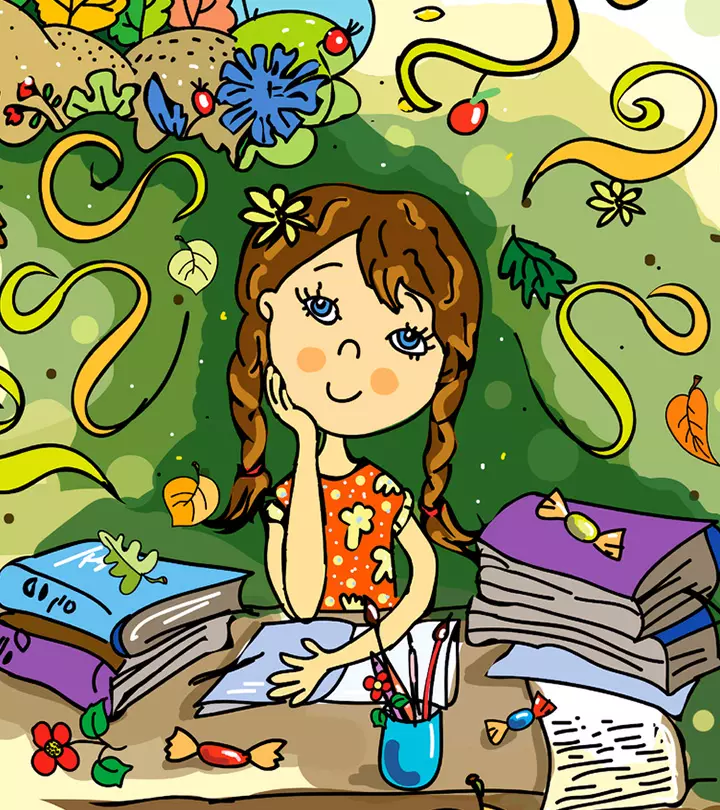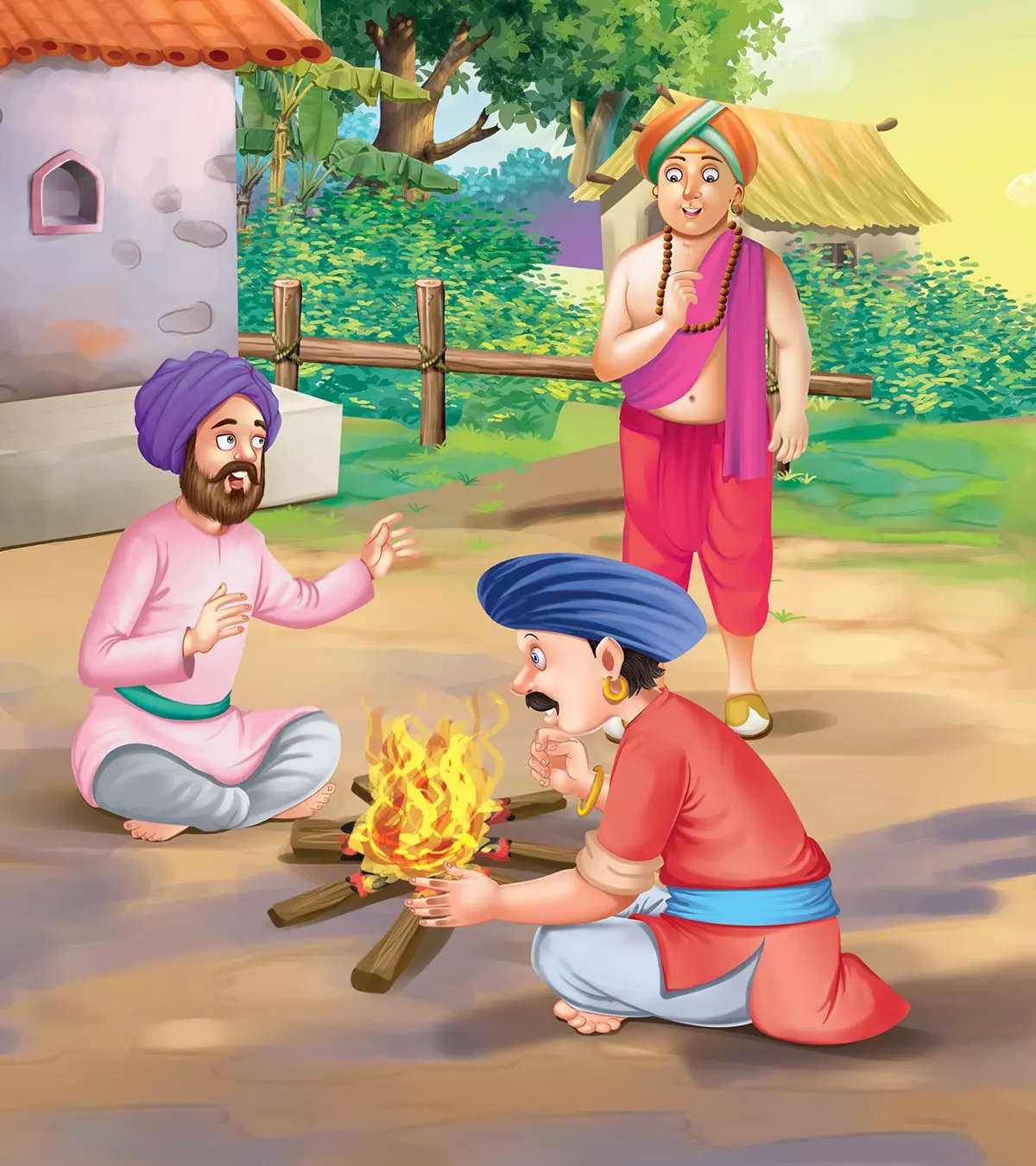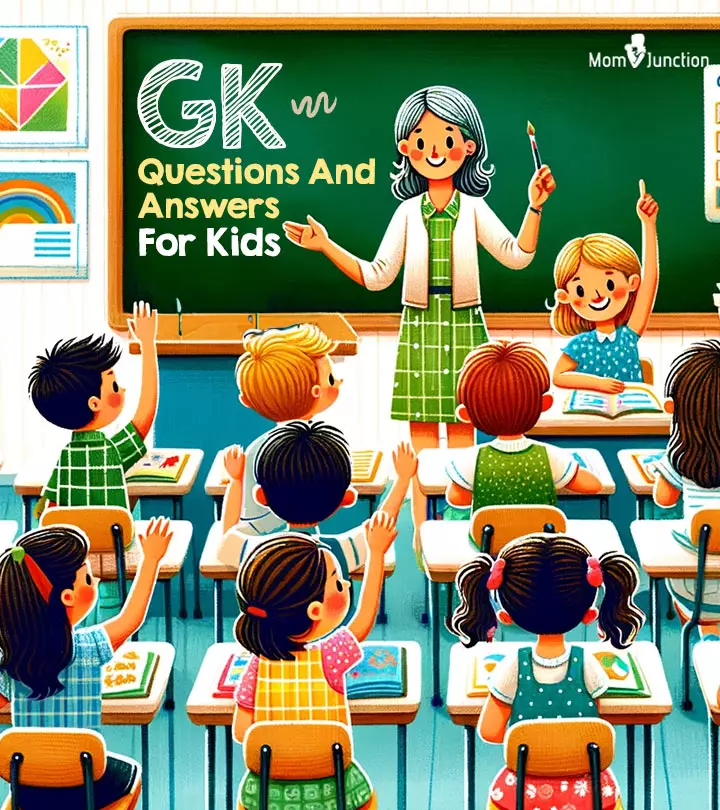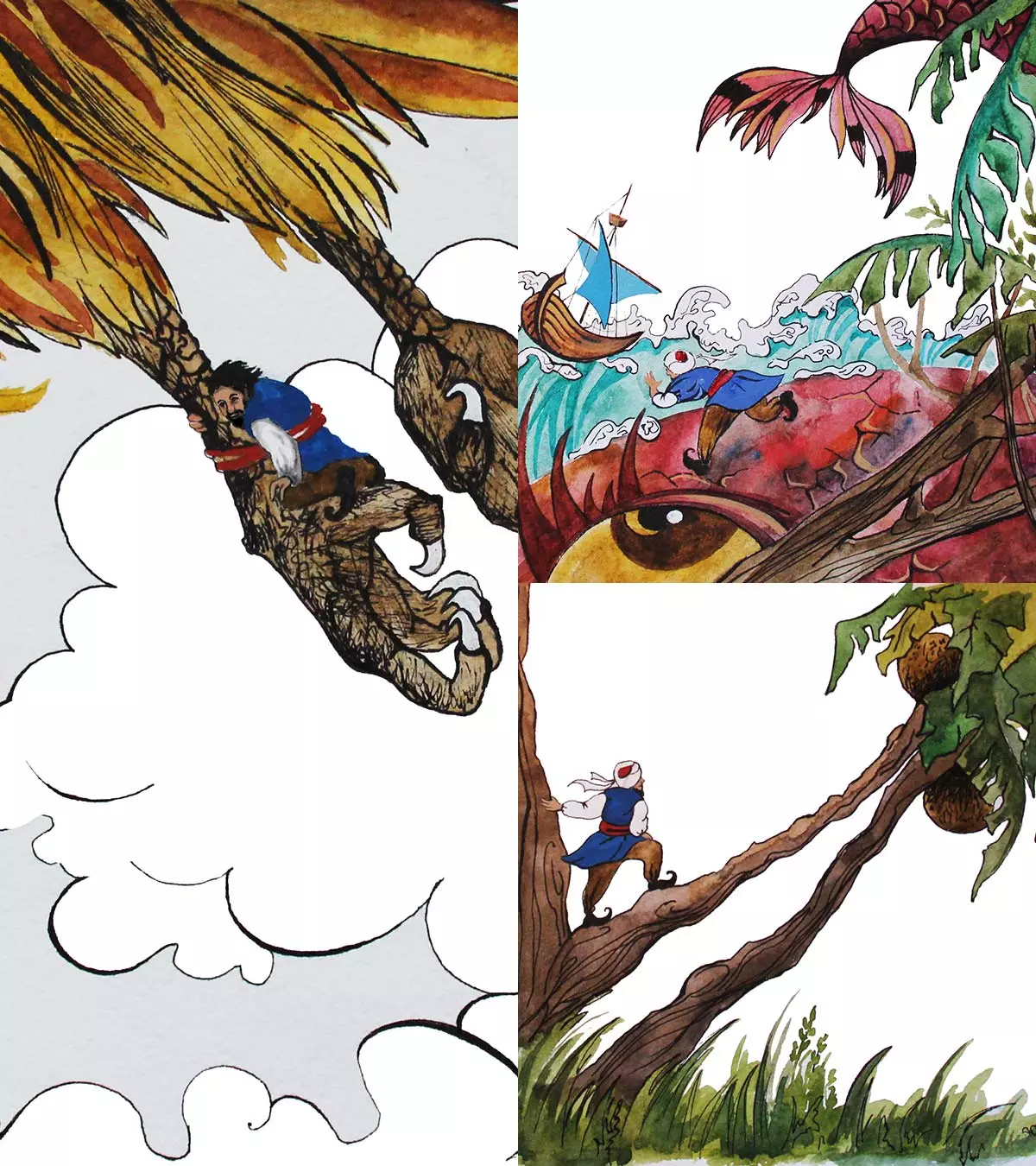
Image: Shutterstock
Writing a free verse poem requires imagination. Here are some free verse poems for kids that your child can read and take inspiration from to write one.
These poems do not adhere to any norms and do not follow meter, rhyme scheme, or structure—just like the fun and carefree nature of children. If you wish to add to their creativity by helping them to write one, this post brings you some tips and tricks.
How To Write A Free Verse Poem For Kids
Writing a free verse poem may sound simple, but it is always a good idea to learn and follow certain guidelines. Keep reading for some easy-to-follow tips.
- Choose your topic or theme: Although you are telling a story and letting your thoughts run wild with your free verses, you need to settle on a theme. Pick a situation, emotion, or object and try to build your poem around it. Next, brainstorm and jot down the thoughts, words, names, characters, or personifications related to the topic or theme.
 Quick tip
Quick tip- Use descriptive words: Descriptive words or adjectives will give life to your ideas and make your poem unique. Some words that you may include are colors, numbers, sizes, shapes, and textures.
- Be expressive: While writing, be expressive and pour your thoughts into the poem. Paint a picture with your words.

Image: Shutterstock
- Try to keep it short: Keep the poem short and sweet. Adding jargon and using too many lines to express an idea would spoil the essence of a free verse poem. Hence, sticking to a short format is ideal.
- Review and edit for grammar mistakes: Free verse poetry doesn’t follow a structure or any rules, but it is important the poets avoid grammatical errors. Basic mistakes can ruin the entire poem and put the reader off.
- Use imagery: Usage of similes, metaphors, personifications, and idioms can make a free verse poem beautiful and interesting. For example, when a poet uses similes, it gives the reader the impression that; they know how to link or connect one thing to another.

Image: IStock
Six Examples Of Free Verse Poems For Kids
Here are some examples of creative and beautiful yet simple-to-read free verse poems for children.
1. City of Potholes
“Zig-zagging down the road
Trying not to stray over the center line
Or hit a curb
Or break an axle
Or flatten a tire
Or wind up in the next surprise sinkhole.
Driving in Toledo is not a sport
For the timid or the sane or the under-insured.”
—Kelly Roper
2. Cloud

Image: IStock
“A blue stain
creeps across
the deep pile
of the evergreens.
From inside the
forest it seems
like an interior
matter, something
wholly to do
with trees, a color
passed from one
to another, a
requirement
to which they
submit unflinchingly
like soldiers or
brave people
getting older.
Then the sun
comes back and
it’s totally over.”
—Kay Ryan
 Do remember
Do remember3. A Happy Child
“My house is red – a little house
A happy child am I.
I laugh and play the whole day long,
I hardly ever cry.
I have a tree, a green, green tree,
To shade me from the sun.
And under it I often sit,
When all my play is done.”
—Anonymous
4. The River-Merchant’s Wife: A Letter

Image: IStock
“While my hair was still cut straight across my forehead
I played about the front gate, pulling flowers.
You came by on bamboo stilts, playing horse,
You walked about my seat, playing with blue plums.
And we went on living in the village of Chōkan
Two small people, without dislike or suspicion.
—Ezra Pound”
5. Real Silence
“I longed for real silence
the kind you can’t find
but stumble upon
in some cabin
somewhere
on a lake without a moon
where you hear the cigarette burn
and the candles flicker
and your mind dances alive
to the symphonies in the black.”
—Atticus
6. Autumn

Image: Shutterstock
“A touch of cold in the Autumn night—
I walked abroad,
And saw the ruddy moon lean over a hedge
Like a red-faced farmer.
I did not stop to speak, but nodded,
And round about were the wistful stars
With white faces like town children.”
—T.E. Hulme
Illustration: Six Best Examples Of Free Verse Poems For Kids

Image: Stable Diffusion/MomJunction Design Team
Frequently Asked Questions
1. What are the rules for free verse poetry?
Free verse poetry is open, goes by its name, and flows freely. There are no rules, as poets or authors are open to pouring their hearts out without having to follow any rules or writing styles with free verse. These poems also lack rhyme or rhythm, yet they sound beautiful.
2. What’s the difference between blank verse and free verse?
Although the format of blank verse and free verse is quite similar, they are not the same. There are no rhyming words at the end of each line in blank verse poetry, but it does follow a recognized pattern of stressed and unstressed syllables. On the other hand, free verse poetry has no set framework or literary style.
3. What are three things about a free verse poem?
The three vital things about a free verse poem are, it does not have any formal structure; it uses regular vocabulary and speech forms to convey ideas; and it uses imagery, metaphor, and floral language.
4. How do one know if a poem is a free verse?
If the poem does not have a formal structure, rhyming words, word count, and uniform length in stanzas; instead, if it has imagery and a natural flow, it could mean that the poem is free verse.
5. Do all free verse poems have stanzas?
A free verse poem may have multiple stanzas, or it may have only one. There are no fixed rules for a free verse poem.
6. How can free verse poetry be used to teach kids about language, creativity, and self-expression?
Free verse poetry encourages children to explore new words and develop their creativity. Moreover, they can use imagery and fancy, flowery language to enhance their writing. Moreover, free verse poems allow children to express themselves freely without the confinement of composition and rhyme scheme. Finally, it gives them the confidence to express themselves fearlessly.
7. How can kids share their free verse poems with others and get feedback on their work?
Children can share their poems in the classroom, among their peers, in writing groups, and in online forums to seek feedback. They could also read their poems to their family during play nights or get-togethers to earn appreciation and learn ways to enhance their writing skills.
8. What are some common themes in free verse poems for kids?
Though free verse poems can be written on any topic, children prefer subjects such as nature, animals, friendship, emotions, family, dreams, and holidays.
9. What are some tips for encouraging creativity in kids when writing free verse poems?
Provide your children with poetry books and encourage them to read different kinds of poems to spark their imagination and creativity. You can also give them fun prompts such as ‘a day in the life of a coin,’ ‘your favorite place,’ or ‘your spirit animal.’
10. How can free verse poetry help a child’s emotional development?
Writing or reading free verse poetry can encourage a child to empathize with people and characters. It allows them to explore their feelings and thoughts freely without the restriction of structure and rhythm. These poems can also help them deal with their feelings.
With these examples of free verse poems for kids, you may encourage your child to write their own poems to promote growth in terms of their imagination, thinking, and poetry skills. Also, it allows your child to express their joy and wonder with a stamp of originality through their own poetry. We have also offered a simple guide to help them create a distinctive free verse poem. Take cues from such free-verse English poems for kids and direct your child with these tips. Encourage them to grab a pen and paper to let out their creative side and nurture their inner poet.
Key Pointers
- Free verse poems allow kids to express creativity without rhyme or structure.
- Descriptive language and imagery bring their ideas to life.
- Children can explore emotions and ideas without limitations in free verse poetry.
- Themes like nature, animals, and family make free verse relatable and fun for kids.
- Sharing poems with others helps boost confidence and improve writing skills.
Learn how to write free verse poems! Discover the beauty of writing without rules and explore your creativity. Let’s get started!
Community Experiences
Join the conversation and become a part of our nurturing community! Share your stories, experiences, and insights to connect with fellow parents.
Read full bio of Vinita Agrawal
Read full bio of Sravani Rebbapragada
Read full bio of Harshita Makvana
Read full bio of Benidamika J Latam























